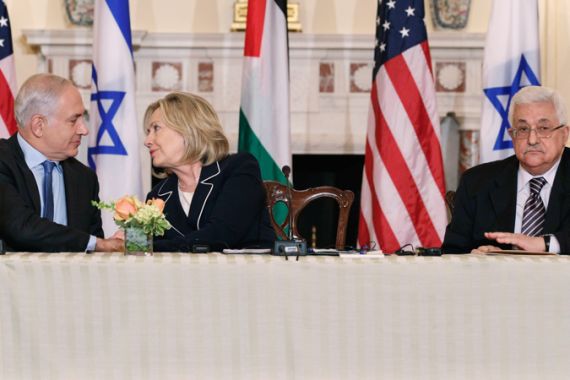
Middle East talks: The US in the backseat
As the US begins an election year, we ask what the future holds for America’s Middle East policy.
On Tuesday, Palestinian and Israeli negotiators met in Jordan for the first time in 16 months. The talks were aimed at exploring the potential for a return to formal direct negotiations.
The last talks broke down in September 2010, with the Palestinians walking out after Israel refused to renew a freeze on settlement building in the West Bank.
|
“This whole exercise is surreal. You have parties at an event that they don’t even believe in. Nobody who’s engaged in this effort seems to believe in it which really begs the question about why we’re continuing over and over again to do something that is virtually bound to fail.” – Robert Malley, former US negotiator |
The Palestinians say they will not negotiate until Israel stops building settlements and recognises a two-state solution based on the 1967 borders. But the Israelis say they will only negotiate without any pre-conditions.
For the past two decades, the US has traditionally acted as the mediator between the two sides, but circumstances are changing fast with the Arab Spring having seen regime change in several countries – certainly in Egypt, where Barack Obama, the US president, was hesitant to back the protesters.
This may have damaged the dominant US position in the region in the eyes of some. And as the US begins an election year, there are questions over whether Obama is likely to, or capable of pressuring either side to get back to the negotiating table.
|
“I think it’s important for the [Obama] administration to have something to hang their head on without the political risks of being directly involved.“ – Khaled el-Gindy, former adviser to the PLO |
No major breakthrough was expected from Tuesday’s talks, particularly after the failure to achieve a peace accord within a year, a promise that Obama made in September 2010.
So can the US lead a Middle East peace process?
Inside Story Americas, discusses with guests: Robert Malley, a special assistant to President Bill Clinton on Arab-Israeli affairs; Daniel Levy, a former Israeli negotiator who worked in the government of Ehud Barak and the co-director of the Middle East Task Force at the New America Foundation; and Khaled el-Gindy, an adviser to the Palestine Liberation Organisation (PLO) and a visiting fellow at the Brookings Institution.
|
US President Barack Obama on the Israel-Palestine issue June 4, 2009: May 19, 2011: September 21, 2011: |